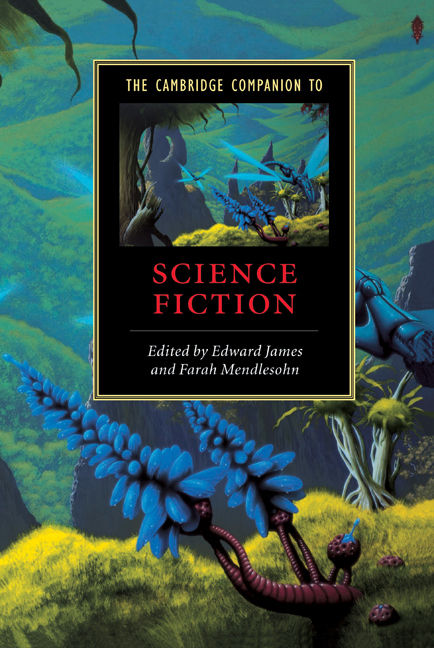Science is usually thought of as something the Greeks set up. If there was science, then there was also science fiction. A flying chariot can be thought of as fantasy, but it is science fiction that makes it fly. Along with the flying castles, super weapons, time travel, and everything else that has been dreamt up for a few thousands of years.
Shamans had to have a good working knowledge of the local pharmaceutical properties of their environment, and probably traded ideas and materials along the way to increase their abilities to carry out their tribal roles in a responsible way. This pushes working science back even further. In order to get credit for their accomplishments, Shamans needed pencils and paper to document everything they did. Then again, being able to store all that information inside the head deserves a lot more credit than is given. They can't be blamed for relying on word of mouth to carry on their history, even though it mostly ended when the last voice in their line died. Sure there were ignorant shamans, and ones who took advantage of their social position, but that is still being practiced today, so it doesn't discount their efforts to make things work in a predictable way for the benefit of their communities. While the medical industry may bristle at the idea that shamans were practicing doctors, that is what they were doing. Medicine is applied science.
Mary Shelley was the first person in modern times to make use of modern day publishing to get her ideas out into the public world where it could be seen for hundreds, and maybe thousands of years. It is her ideas that shaped the story into a warning about how modern technology could develop stuff that could have a life of its own. The questions she raised are still going unanswered and we are coming closer and closer into breathing life into inert matter. Even if we start out with just one living cell and create full bodied life out of that we are still stuck with the same questions that she raised. She was the first modern person to use modern ideas about science, life, medicine, education, and philosophy to create a story that still resonates within us because the story is based on real ideas and asked real questions that we still don't know the answer to. But she wasn't the first person to write or dream up science fiction that had social consequences.
The horror aspect of the story was cemented in place by Hollywood and the movie industry. Instead of focusing on the social and philosophical aspects of the story, the movies thrived on shock value, human ambition, and science, all of which creates spectacular horror shows. The movie character Frankenstein is far more well known than his bookworm cousin. I don't know what it is about the original movies, but they seem like magnificent sculptures of sight and sound created by old world masters compared to most of the later movies that came afterwards. Anyone ever see Frankenstein 1970? Sure the horror kept coming in brilliant color, but it was sidetracked by directors trying to reinvent a story that doesn't need reinventing. Hammer films did a great job of keeping the original horror aspect alive by amplifying the original stories and films without distorting them, allowing the movies to carry the manufactured horror of the monster straight into our minds.
Perhaps the strongest message the original Frankenstein brought forward is that we shouldn't empower ourselves by overpowering others.


